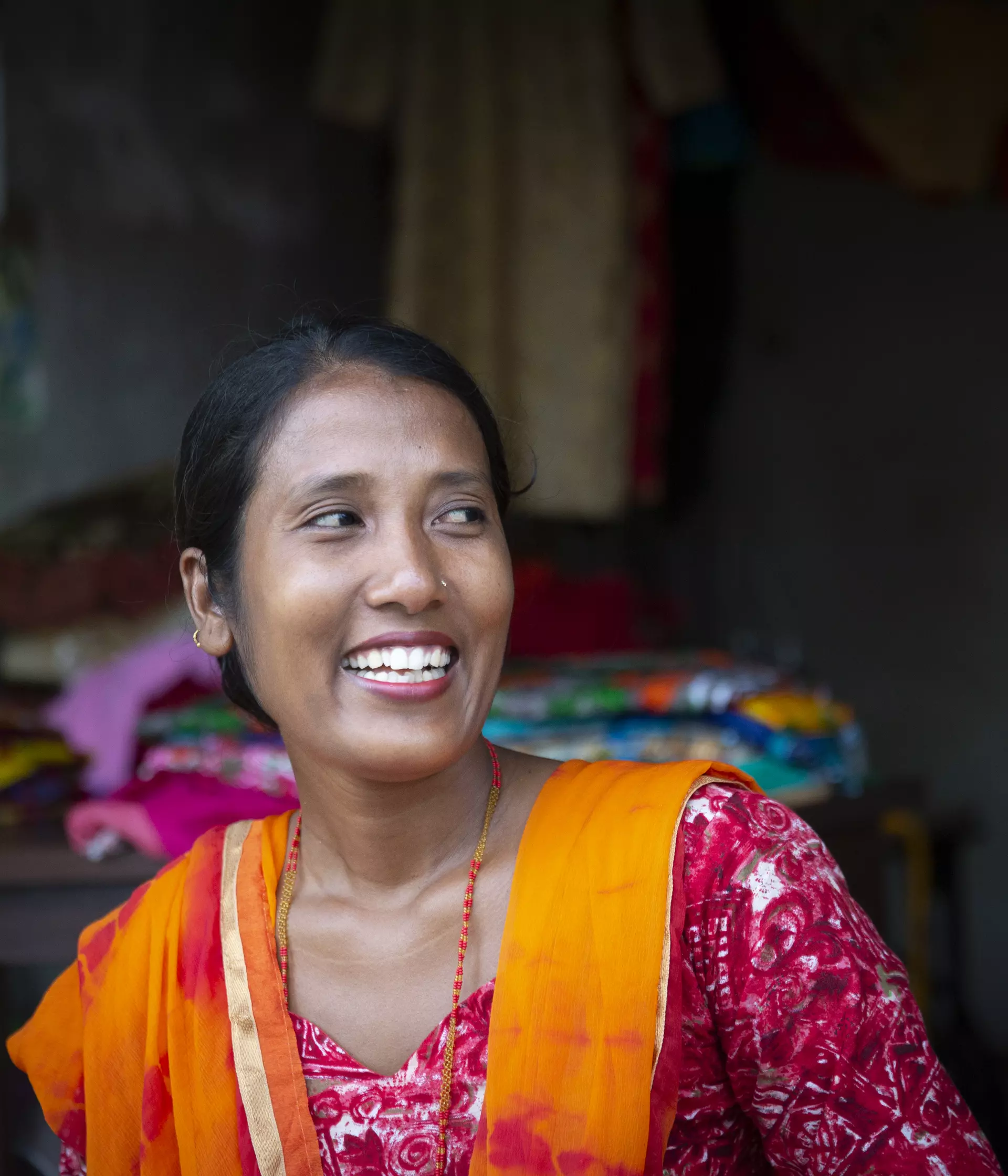Living with wildlife isn't always easy, but by supporting new local businesses in Nepal we are reducing dependence on natural resources. This is creating a brighter future for both tigers and people in Nepal, because when nature wins, we all do.
Stopping human wildlife conflict in Nepal
Gayatri’s tailoring shop is just three doors down from Rita’s beauty salon, facing onto the road that runs through Chuchekhola. The shop – a square concrete room – is filled with piles of brightly coloured fabrics awaiting her dextrous fingers, while an array of golden, red, orange and green clothes hang from a line running along the back. On one wall are stuck torn-out pages from fashion magazines or catalogues and, pride of place at the front of the shop, sits a well-used, black Singer sewing machine. Gayatri sits at the desk, pushing the pedal underneath with her foot, watching village life unfold before her.
Reducing human wildlife conflict
Gayatri herself had a limited education, dropping out of school at a young age to support her parents, and hopes her children’s education will give them more opportunities than she had. As a child she often accompanied her parents into the forest to collect firewood and livestock fodder. When she married, even her mother- and father-in-law regularly risked wild animal attack or fines to collect firewood to sell to local hotels.
As human activities push our planet to its limits, it’s more vital than ever to bring people with us to drive nature’s recovery. You can be part of it too. Help power solutions to save our living world at ZSL.
